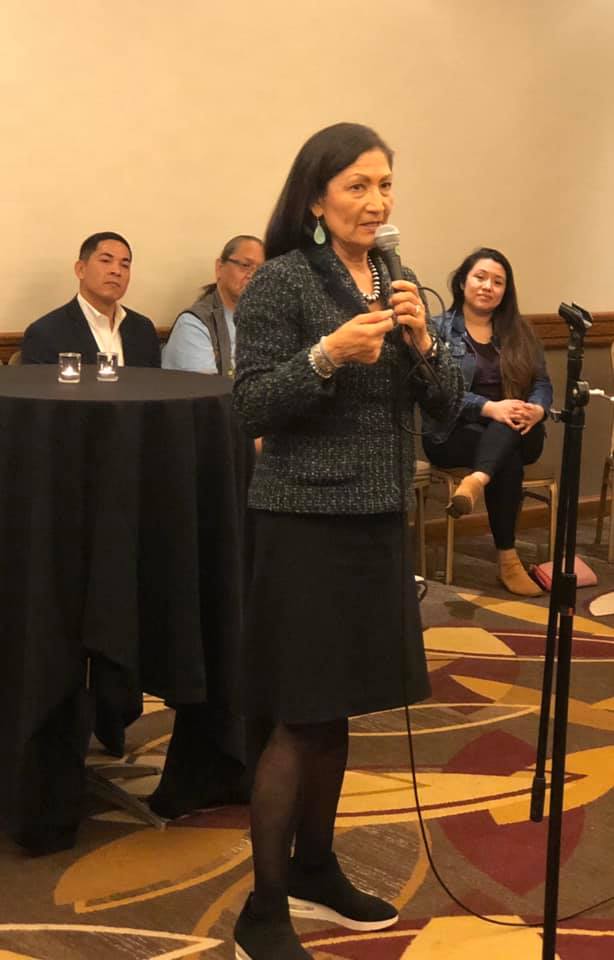ATNI Postion Announcement: Project Coordinator
Position Description
Interdisciplinary Research Leaders-Team Akiak
Project Coordinator (Part-time contract)
TITLE: PROJECT COORDINATOR (Contract Position)
HOURS: Up to 20 hours per week
LOCATION: Remote within the Greater Northwest and Western Alaska
PAY RANGE: $28-30 per hour (No benefits included)
SUBMISSION DATE: Wednesday, March 24, 2021 at 5 PM (PT)
Job Description: PROJECT COORDINATOR
This position is open to interested contractors. Serious part-time applicants please send a cover letter, resume/CV and three references (name, title, organization, email, phone) to James Parker of ATNI at jparker@atnitribes.org by March 24, 2021 at 5 PM (PST). This is in conjunction with the Robert Wood Johnson Foundation.
Project Overview
This study builds on an established community partnership between our interdisciplinary team and an Alaskan Native community. This study embodies Indigenous research methodologies including ethical tribal engagement at all stages of research design, implementation, dissemination and policy impact. Our work will yield two broad results: water quality data on local watersheds and a better understanding about how environmentally related stress experienced by the Alaska Native community is impacting their health. In addition,we will initiate extensive conversations around the topics of water and health by building a network of tribal leaders and policy makers to prioritize their local needs and to identify culturally grounded solutions.
Who are we?
This study is a community-academic partnership endeavor between ATNI, University of Washington and an Alaska Native community. Through this partnership ATNI has an outstanding opportunity for a Project Coordinator reporting to the Project Director for the environmental research project, “A Holistic Environmental Health Approach to Promoting Health, Equity and Water Security in one Alaska Native Village.”
Position Purpose
The primary purpose of this Project Coordinator position is to provide research project coordination and support for a research team across ATNI, University of Washington and an Alaska Native community to achieve the aims of the environmental health study. The Project Coordinator works under the general direction of the Project Director, and provides overall coordination.
Under the guidance of the Project Director, the Project Coordinator will be responsible for day-to-day administration of the project. This will include, but is not limited to, scheduling virtual and in-person meetings, record keeping, assisting with coordinating data collection and arranging water quality data testing in labs among partnering institutions, assuring fidelity to data collection protocols, ordering supplies, and managing travel arrangements. Additionally, he/she/they will provide logistical support for quantitative and qualitative data collection in the Pacific Northwest and Alaskan sites. He/she/they will also generate progress reports to funders and Tribal partners, create posters and other communication tools, and coordinate dissemination of research results at the community-level, as well as support the research team in publication of research results. This position requires a high degree of flexibility and tact, the ability to work with a wide range of community and academic partners, and experience developing, implementing, and monitoring research protocols.
Position Dimensions
The part-time (up to 20 hours per week) position bridges the often wide gap – real and perceived – between academia and community, especially with respect to environment health research. By building mutual trusting relationships between academia and communities, both parties will be able to address environmental health disparities to the mutual benefit of community well-being, as well as academic research.
Duties and Responsibilities
Responsibilities for the study include but are not limited to:
- Work with the Principal Investigators to design and implement the various phases of the research project.
- Coordinate work plans to meet strategic objectives for continued partnership engagement, recruitment of participants, focus groups, water sample, online survey development, data collection, data analysis and dissemination.
- Assess unique research approval mechanisms for the UW and the partnering tribes, identify diverse approval steps, and complete all necessary processes (including IRB applications, administrative letters, and tribal resolutions) to obtain research approval from partner tribes.
- Assist the team in establishing protocols to standardize daily operating procedures and promoting an organizational culture that is transparent and accountable to all stakeholders.
- Organize, maintain and revise project files and the large number of documents within those files.
Requirements
Master’s degree in Information School, American Indian or Indigenous Studies, Environmental Science, Public Health, Psychology, Tribal Colleges and Universities or related field and 2-3 years of relevant experience to include:
- At least 2 years of Community-Based Participatory Research education and/or experience
- At least 2 years of work with American Indian/Alaskan Native communities
- Strong project management skills, including meeting scheduling, travel logistics and financial reconciliation
- Knowledge and prior experience with human subjects institutional review process
- Proficiency in Microsoft Word, Excel, and PowerPoint, Zoom, References and Bibliography software (e.g., Endnote)
- Strong commitment to social justice and experience partnering with under-served communities for purposes of health equity
- Ability to work independently, prioritize and manage multiple tasks, and conduct follow-up
- Excellent interpersonal and communication skills (written and spoken), with demonstrated ability to earn trust and respect of colleagues and partners at all levels and from diverse backgrounds and cultures
- Flexibility with shifting priorities and competing demands
- Ability to work as a collaborative, cooperative, and congenial member of an interdisciplinary research team, as well as work independently.
Desired
Experience in tracking, completing and revising research ethics and project recruitment materials in tribal settings.
Start and End Dates
The position is open immediately, March 15, 2021, with funding guaranteed through Sep 1, 2023.

